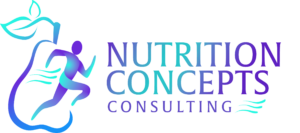Nutritional Strategies for Managing Chronic Kidney Disease (CKD)
Chronic Kidney Disease (CKD) is a progressive condition characterized by a gradual loss of kidney function over time. Proper nutrition is essential in managing CKD, as it helps control symptoms, slow disease progression, and improve overall quality of life.
Understanding Chronic Kidney Disease
CKD is categorized into five stages, based on the severity of kidney damage and glomerular filtration rate (GFR). Symptoms can vary widely and may include fatigue, swelling, changes in urination, and high blood pressure. Common causes of CKD include diabetes, hypertension, and glomerulonephritis. Early detection and management are crucial to prevent further kidney damage.
Nutritional Needs for CKD Patients
Managing CKD requires an individualized diet plan tailored to the patient’s stage of disease, lab results, and overall health. Key nutrients that need careful monitoring include protein, sodium, potassium, and phosphorus. Proper dietary adjustments can help manage these nutrients and alleviate the workload on the kidneys.
Key Nutritional Guidelines
- Protein Intake and Sources:
- Early Stages (1-3): Moderate protein intake is recommended to avoid excessive kidney workload. High-quality protein sources such as lean meats, fish, eggs, and plant-based proteins are preferred.
- Advanced Stages (4-5): Protein intake will need to be further reduced. Consultation with a Registered Dietitian Nutritionist is essential to ensure adequate nutrition without overloading the kidneys.
- Sodium and Fluid Management:
- Limiting sodium intake to less than 2,300 mg per day helps control blood pressure and reduce fluid retention. Avoid adding salt to food and choose low-sodium alternatives.
- Fluid intake may also need to be monitored, especially in advanced stages of CKD or if the patient is on dialysis.
- Potassium and Phosphorus Control:
- High potassium levels can lead to heart problems, so it is important to monitor and limit potassium-rich foods like bananas, oranges, potatoes, and tomatoes.
- Phosphorus is found in dairy products, nuts, seeds, and certain beverages. High phosphorus levels can weaken bones and harm the heart, so intake should be limited.
Foods to Include
- Low-Sodium and Low-Potassium Vegetables: Such as cucumbers, bell peppers, cabbage, and cauliflower. These are great for maintaining a balanced diet without overloading on harmful minerals.
- High-Quality Protein Sources: Lean meats, poultry, fish, and egg whites provide essential nutrients while being easier on the kidneys.
- Whole Grains and Healthy Fats: Brown rice, quinoa, and whole wheat pasta, along with healthy fats from sources like olive oil and avocados, support overall health without excess protein or minerals.
Foods to Limit
- High-Sodium Foods: Processed meats, canned soups, salty snacks, and fast foods should be avoided to manage blood pressure and fluid retention.
- Foods High in Potassium and Phosphorus: Limit intake of bananas, oranges, tomatoes, dairy products, nuts, seeds, and cola drinks.
- Processed and Fast Foods: These often contain excessive sodium, phosphorus, and unhealthy fats that can exacerbate CKD.
Proper nutrition is a cornerstone of managing Chronic Kidney Disease. By following individualized dietary guidelines and making careful food choices, CKD patients can control symptoms, slow disease progression, and improve their quality of life. Always seek professional dietary advice to ensure that nutritional needs are met while protecting kidney health.
